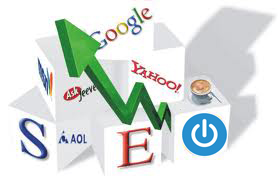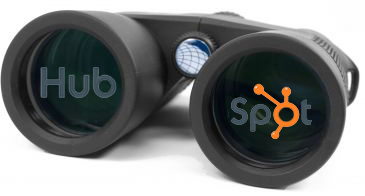So, you have a website – that’s all well and good. But do you know how many views it receives per day, or it’s organic success in search engines such as Google, Yahoo! and Bing? And more importantly, do you want to increase the traffic to your site? Well luckily for you, there are countless tools that make managing inbound linking and search engine optimization easy and efficient! When I first started working at InfoTrust in January, I began the task of improving the SEO for our site. So, naturally, I was introduced to some of these fantastic resources and I want to share with you what I’ve learned.
Hubspot
Personally, Hubspot was my “go-to” resource for all my SEO needs. InfoTrust is a big supporter of Hubspot, mainly because it can be utilized in so many different ways – such as improving event marketing and enhancing your recruitment techniques. But for the purpose of this blog, I’ll stick with SEO.

- Perhaps Hubspot’s most useful SEO tool is Page Manager. This provides you with a list of all the pages on your site and an option to edit the page properties for each. These page properties include SEO elements such as page titles, meta keywords and meta descriptions. I cannot emphasize enough the importance of having updated and relevant SEO elements. When search engines crawl through your site, they use these tags and descriptions to help direct users to your site through organic searches. Put simply, relevant page properties = increased web traffic.
- Now, you’re probably asking yourself, how am I supposed to know which meta keywords are going to be the most effective?” Hubspot’s got you covered! There are countless reports that Hubspot can provide you. And, you guessed it, there’s a Keyword List of your most relevant and popular keywords used in organic searches. This can give you some guidance as to which words to emphasize on each page of your site. Also included in this report is a list of how many inbound links and ranked keywords there are on each page as well as a SEO performance rating.
- Another useful report Hubspot generates is Page Performance. This tool provides you with a report showing how many views each page on your site received. It also states which pages have critical errors, such as a lack of category tags, and gives you suggestions on how to improve your SEO elements, such as shortening a meta description or adding a call to action.
- Now, what about Inbound Linking? Also SUPER important! Hubspot allows you to view the sites you are linked to. You can also see how many of these inbound links have led to referrals to your site so you can gauge how successful your link building actually is. Posting comments on irrelevant sites and blogs won’t do you any good. Just because you can post a comment doesn’t mean you should. Basically, don’t spam!
- Finally, Hubspot not only allows you to see a list of your inbound links, but your Competitors Inbound Links as well (bonus: 6 free analytics tools to help you understand your competitor’s traffic. Think of it as a little cheat sheet with the sites you should focus on placing inbound links. I know I’ve said it before, but don’t miss out on this competitive advantage! It’s too beneficial to pass up

Google Webmaster Toolkit
Like Hubspot, Google’s Webmaster toolkit is very useful when looking to enhance SEO elements. The most beneficial tool, for me, was the Fetch as Google option. Basically, it allows you to see your pages the way Google does. Cool, huh? Talk about a competitive advantage! The crawler goes through the pages of your site and generates a report stating which pages Google had trouble crawling and points out page errors and suggestions to enhance page performance. These errors include duplicate and/or missing title tags or meta descriptions. Although they seem like minor errors, fixing them can help increase traffic to your site. Pretty simple stuff, right?
Webmaster toolkit also provides a list of your most impactful content keywords as well as how often they are used and appear on your site. Helpful hint: If surprising or strange keywords appear on the list, this may be an indicator that your site has been hacked! With this knowledge, you can make the necessary changes and prevent the problem from happening again.

Also similar to Hubspot, Webmaster toolkit provides you with a list of links to your site as well as what your most linked content is (such as a blog or an event page, etc.)
I know what you’re asking yourself…why isn’t everyone utilizing these resources?? The answer: I don’t know! What do you have to lose? Focusing efforts on SEO and link building is a growing trend in the digital marketing world and you don’t want to be left behind. Don’t let your site fall through the cracks when the solution is so simple!
or contact us if you have any questions about our other services.
Article Written by Jill Schmidt


